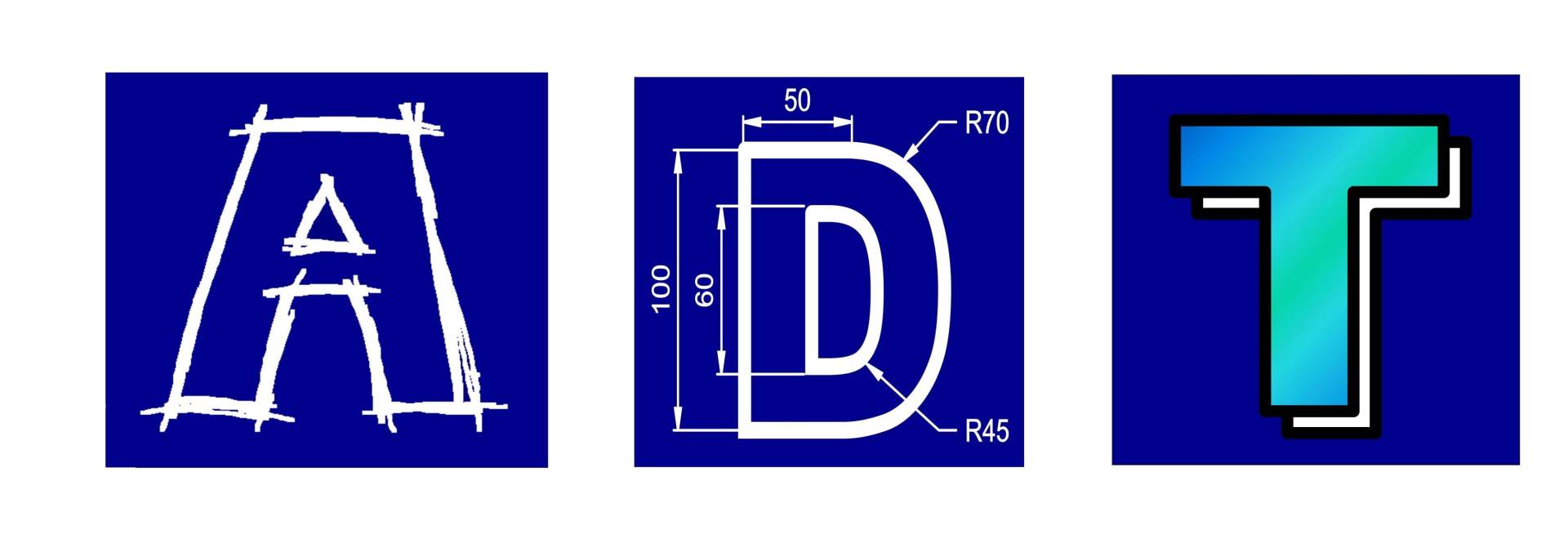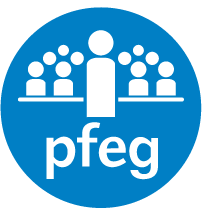Art, Design & Technology
KEY STAGE 3
 Each year in Art, Design & Technology (ADT), pupils are taught by a number of specialist design teachers, in a rotation system including Resistant Materials Technology, Food Technology, Textiles, Graphics, Electronics and Art. ICT and CAD are used to enhance research and design work in all areas.
Each year in Art, Design & Technology (ADT), pupils are taught by a number of specialist design teachers, in a rotation system including Resistant Materials Technology, Food Technology, Textiles, Graphics, Electronics and Art. ICT and CAD are used to enhance research and design work in all areas.
Throughout the department, pupils are encouraged to develop imagination, independence and creativity through a range of “design and make” tasks, resulting in quality products to take home. Current projects include: Cultural textile cushions, Eatwell Guide & Nutrition, Mechanical toys, Laser Cut LED Maze, Graphics and CAD/CAM (Computed Aided Design and Manufacture.) Pupils are taught to record ideas and opinions, and to evaluate their own design/art work and those of other artists and designers from differing cultures, past and present.
During all years, pupils will work with a variety of materials including textiles, graphic media (paint, pencil, paper, photographs), resistant materials (wood and plastic), electronic components and food. They will be taught to work within the constraints of cost and time and to consider sustainability throughout. Making is important, but an increasing emphasis is also placed on the preparatory research, theory and design elements of the subject.
Key Stage 3 ADT homework will be set as appropriate during courses, generally weekly (though where pupils have two ADT teachers this may vary).
ADT homework will be set via the Google Classroom. Pupils should speak to their teachers in person should they have any problems or questions.
ADT Homework tasks will be a mixture of:
- Flipped Learning, where pupils learn about certain topics or skills before the lesson in which they are taught/needed.
- Consolidation, where pupils practice or extend knowledge or skills gained in lessons.
- Retrieval/Review, where pupils recall information gained previously.
- Literacy Tasks, where pupils complete a range of questions based on the definition of higher order technical words.
- Research, where pupils investigate topics, usually as preparation for classwork tasks.
Pupils are taught to observe the high standards of health and safety that are maintained throughout the department.
In order to provide top quality materials for these projects, we ask for a one-off contribution which will pay for all materials used in ADT over the next three years. For this payment your child will receive an apron and will be able to bring home all of their finished products. Pupils may provide their own apron should they wish, with a corresponding reduction in charge.
Pupils will need to bring ingredients and a named apron for Food Technology practical lessons.
In addition, pupils are expected to arrive at ADT lessons with the correct drawing equipment, such as pens, pencils, coloured pencils (not felts), ruler, rubber and sharpener.
MARKING AND ASSESSMENT
Verbal feedback is given when appropriate throughout a course.
Pupils’ work is marked, as appropriate, using:
- WA (Well Above)
- AB (Above)
- AT (at)
- T (Towards)
- B (Below) grades which relate to our Expected Standards.
Pupils are often provided with comments on what they have done well (www) and what they could do to improve (ebi).
Each year, pupils work towards an “ADT focus” (teamwork, independence, creativity etc). These are recorded in pupils’ organisers for reference and their course booklets. At the end of each course, pupils complete a self-assessment in the back of their work booklets; and also have the opportunity to provide their own comments.
More formal assessments and attitude/organisation grades are made at the end of each course. These are recorded on assessment sheets at the back of pupils’ work booklets, along with targets and suggestions for improvement. These are returned to the pupils for viewing and discussion before they are taken home to share results with parents.
INTENT - THE 7 CS
In ADT, we aim to empower pupils to be:
- Creative designers/artists.
- Considerate of wider issues.
- Confident and independent risk takers.
- Capable of realising their own innovative and creative products.
- Confident users of current technologies.
- Aware of the importance of transferring skills from ADT to other Curriculum areas.
- Able to successfully Communicate their ideas through drawing and writing.
ADT Learning Journeys
ADT Intent
Key concepts for each project in Y7
Yr7 GP (Structures & Silhouettes)
- I know what makes a strong structure.
- I can identify ways to make products more sustainable.
- I understand the importance of accuracy and testing.
- I can list the advantages of using CAD & CAM.
- I know how to manipulate and output images using CAD.
Yr 7 RMT (LED Maze)
- I know how and why materials are classified (grouped).
- I understand the advantages of working as a team.
- I understand the advantages of using jigs/templates when designing and making.
- I know how electronic products are controlled.
- I understand the importance of testing and troubleshooting.
Yr 7 Textiles (Sustainability)
- I’m aware of sustainability and the environmental impact of products I use.
- I know how to hand sew and join fabrics together.
- I know how to use Textile equipment safely.
- I can work as part of a team and with others.
Yr 7 Food (Healthy Eating)
- I understand how different foods can go into different sections of the eatwell guide.
- I know how to make food hygienically and safely.
- I understand the detail that's used on packaging.
- I understand the importance of energy and nutrients.
Year 7 Art (Mark Making)
- I can use a range of art materials to create marks.
- I understand how colour theory can be used to create texture and mood within a piece of artwork.
- I understand the importance of testing materials before applying them to a final piece.
- I understand how other artists’ work can influence our own.
Key concepts for each project in Y8
Year 8 Graphics (Fragrance Packaging)
- I know a range of graphic techniques to help enhance my presentation.
- I understand the importance of accuracy and precision.
- I understand that designers often follow certain conventions (rules).
- I understand that the work of others can influence our own.
- I am aware of the advantages and disadvantages of CAD/CAM.
Year 8 Textiles (Cultural Cushions)
- I know how and why textile materials are classified (grouped).
- I understand what fabric properties are and the importance when choosing fabrics.
- I understand why designers must consider wider issues when designing and making including: Cultures, Environmental impact and Social responsibilities.
- I know how to use a range of cultural decorative techniques to add decoration to my design: Tie Dye, Block print, Embellishment.
- I can use a sewing machine to join fabrics together.
Year 8 Food (Staple Foods)
- I can develop practical knowledge based on staple foods.
- I know how staple foods are produced and processed.
- I can identify factors that affect food choices for young people.
- I can evaluate practicals using a variety of methods.
- I can think of lots of ideas and be creative.
Year 8 Art (Cultural Art & Patterns)
- I can use cultural influences when designing and making.
- I understand how to produce prints, 2D work and 3D work linking to different cultures.
- I can produce and develop work using sustainable materials.
- I can work independently and as part of a team with others.
Key concepts for each project in Y9
Year 9 RMT (Mechanisms)
- I understand what a mechanism is.
- I can identify a range of mechanisms and explain how they work.
- I understand how mechanisms can be used to change motion.
- I understand how CAD/CAM can be used to aid manufacture.
- I understand the importance of Independence and quality control during manufacture.
Year 9 Textiles (Modern Textiles)
- I know what Smart and Technical materials are.
- I understand how the Textile industry is developing alongside new technologies.
- I can explain what Technology push and market pull are and give examples.
- I understand what Biomimicry is and how it can help to solve problems.
- I can use CAD and paper based modelling to test and visualise my designs.
Year 9 Food (Food For Teenagers)
- I understand the importance of energy, hydration and nutrition.
- I understand how timing has an impact in hospitality and catering.
- I know how to use skills to make and present a variety of cultural meals.
- I can evaluate using a star diagram.
- I can calculate the cost of a meal and compare it against a shop bought product.
Year 9 Art (GCSE Introduction - Fine Art)
- I understand how to develop my work using a range of media.
- I understand how the grid method can be used to increase accuracy when drawing.
- I have developed new skills relevant to industry.
- I can select appropriate materials to produce independent outcomes.
- I know the reasons for researching artists, analyzing work and applying their skills to my own final outcomes.
Year 9 Art (Perspective Project)
- I understand why artists & designers use 1 point and 2 point perspective.
- I can confidently apply perspective to create a piece of artwork.
- I can identify artists that use distortion in their work.
- I can use a range of media to create a distorted portrait.
Key Stage 4 (GCSE)
The ADT Department are currently offering the following GCSE exam courses:
- EDUQAS Design & Technology: with possible specialisms in RMT (Resistant Materials Technology), Textiles or Graphics.
- AQA Food Preparation & Nutrition.
- AQA Fine Art.
It is important to stress that all of the above courses are very theoretical. Whilst pupils will undertake designing and making, the associated theory (including large elements of Maths and Science) forms a large part of the final grade. For both D&T and Food, 50% of the qualification is exam-based and the other 50% is project-based (NEA). For Art, 40% of the qualification is exam-based and 60% is coursework.
Homework is set regularly. This homework covers much of the vital theory work necessary for exams, so self-motivation and adherence to deadlines is vital.
For Year 10, parents will be expected to pay a one-off contribution towards all necessary materials and equipment. Text books will be included in this contribution for Food Preparation & Nutrition, but for Design & Technology, links to either hard copies or online versions will be provided for parents to purchase independently. In Year 11, pupils can either source their own materials and equipment or purchase them (at a discounted rate) on a “pay as you go” system from the ADT Department shop.
Further details and advice can be obtained via the AQA and Eduqas websites, within the GCSE Options Booklet and individual subject leaflets which are available from the ADT staff.
ADVANCED SUBJECT INFORMATION
LINKS TO EXAM BOARD SPECIFICATION
AQA Food Nutrition & Preparation
Year 11 Key Dates
- November - NEA 1 Food Preparation & Nutrition
- December - Mock exams - Design & Technology, Food Preparation & Nutrition
- March - NEA 2 Food Preparation & Nutrition
- March - NEA hand in - Design & Technology
- March - Art Exam
- June - Design & Technology, Food Preparation & Nutrition written exams


















